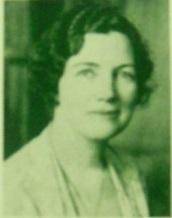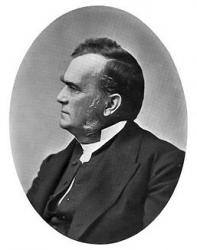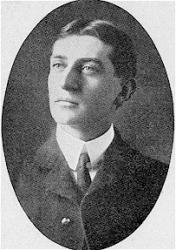Planning worship?
Check out our sister site, ZeteoSearch.org,
for 20+ additional resources related to your search.
- |
User Links
Person Results
Daniel Read
1757 - 1836 Person Name: Read Composer of "[The day is past and gone]" in Juvenile Choir Daniel Read; b. 1757, Rehoboth, Mass.; d. 1837, New Haven, Conn.An American composer and a primary figure in early American classical music. He was one of the “Yankee Tunesmiths” (1st New England School of Music) when classical music was popular in Europe. Read was a private in Massachusetts militia and later a comb maker and owner of a general store in New Haven, CN. He was only the 3rd composer in the U. S. to put out a collection of his own music. His work, “The American Singing Book” went through 5 editions, making him the most popular composer in the nation. Others often plagarized his tunes in those days. Tunebook sales supplemented his general store income, including “The Columbian Harmonist” (3 volumnes) with 3 revisions, and “The New Haven Collection of Sacred Music” 1818. Read also published “The American Musical magazine” in 12 annual issues in 1786 and 1787. In later years he came to appreciate European music more and imitated that styling in devotional music. Some of Read's music is still being performed, and selections have been published in “The Sacred Harp”, 1991 Edition, and the “Stoughton Music Society” (Centennial Collection 1980).
John Perry
Daniel Read
Arthur Sullivan

1842 - 1900 Person Name: Arthur S. Sullivan, 1842-1900 Composer of "IN MEMORIAM" in The Hymnal Arthur Seymour Sullivan (b Lambeth, London. England. 1842; d. Westminster, London, 1900) was born of an Italian mother and an Irish father who was an army bandmaster and a professor of music. Sullivan entered the Chapel Royal as a chorister in 1854. He was elected as the first Mendelssohn scholar in 1856, when he began his studies at the Royal Academy of Music in London. He also studied at the Leipzig Conservatory (1858-1861) and in 1866 was appointed professor of composition at the Royal Academy of Music. Early in his career Sullivan composed oratorios and music for some Shakespeare plays. However, he is best known for writing the music for lyrics by William S. Gilbert, which produced popular operettas such as H.M.S. Pinafore (1878), The Pirates of Penzance (1879), The Mikado (1884), and Yeomen of the Guard (1888). These operettas satirized the court and everyday life in Victorian times. Although he composed some anthems, in the area of church music Sullivan is best remembered for his hymn tunes, written between 1867 and 1874 and published in The Hymnary (1872) and Church Hymns (1874), both of which he edited. He contributed hymns to A Hymnal Chiefly from The Book of Praise (1867) and to the Presbyterian collection Psalms and Hymns for Divine Worship (1867). A complete collection of his hymns and arrangements was published posthumously as Hymn Tunes by Arthur Sullivan (1902). Sullivan steadfastly refused to grant permission to those who wished to make hymn tunes from the popular melodies in his operettas.
Bert Polman
Arthur Sullivan
Amzi Chapin
1768 - 1835 Person Name: A. Chapin Composer of "VESPER" in Christ in Song Amzi Chapin USA 1768-1835. Born in Springfield. MA, into a family of cabinetmakers, jewelers, and watchmakers, he followed in the same trade in Hartford, CT. for several years, then moved to New Haven, CT. He embarked on a career as an itinerant singing teacher, composer, and cabinetmaker in the South and Midwest. He married Hannah Power and they had eight children. They lived in Mount Pleasant, PA, where he taught singing and farmed for the next 30 years. He also founded a mill. He co-founded the Presbyterian congregation in Northfield Township. Chapin taught singing schools in VA, NC, KY, and PA. In 1831, he and his family moved to Northfield, OH. His older brother, Lucius, was also a singing teacher, and they were among the first to teach sacred music west of the Allegheny Mountains.
John Perry
Amzi Chapin
Annabel Morris Buchanan

1888 - 1983 Arranger of "EVENING SHADE" in Folk Hymns of America Born: October 22, 1888, Groesbeck, Texas. Died: January 6, 1983, Paducah, Kentucky. Buried: Round Hill Cemetery, Marion, Virginia.
Daughter of William Caruthers Morris and Anna Virginia Foster, and wife of John Preston Buchanan, Anna received her musical training at the Landon Conservatory of Music, Dallas, Texas (to which she received a scholarship at age 15); the Guilmant Organ School, New York; and studying with Emil Liebling, William Carl, and Cornelius Rybner, among others. She taught music in Texas; at Halsell College, Oklahoma (1907-08); and at Stonewall Jackson College, Abingdon, Virginia (1909-12). In 1912, she married John Preston Buchanan, a lawyer, writer, and senator, from Marion, Virginia; they moved to their home, Roseacre, in Marion, where they had four children.
Buchanan served as president of the Virginia Federation of Music Clubs in 1927, and helped organize the first Virginia State Choral Festival in 1928, and White Top Folk Festivals (1931-41). After her husband’s death in 1937, she sold Roseacre and moved to Richmond, Virginia, with her two youngest children. She taught music theory and composition and folk music at the University of Richmond (1939-40); during the summers, at the New England Music Camp, Lake Messalonskee, Oakland, Maine (1938-40); and at the Huckleberry Mountain Artists Colony near Hendersonville, North Carolina, in 1941. She later moved to Harrisonburg, Virginia, and taught at Madison College (1944-48). In 1951, she moved to Paducah, Kentucky. She later became the archivist of the folk music collecting project of the National Federation of Music Clubs, serving until 1963. Buchanan’s works include:
Folk-Hymns of America (New York: J. Fischer, 1938)
American Folk Music, 1939
Sources:
Findagrave, accessed 15 Nov 2016
Hughes, pp. 329-30
Hustad, p. 213
© The Cyber Hymnal™. Used by permission. (www.hymntime.com
Annabel Morris Buchanan
Stephen Jenks
1772 - 1856 Composer of "VESPER" in Hymn and Tune Book of the Methodist Episcopal Church, South (Round Note Ed.) Born: March 17, 1772, Glocester, Rhode Island.
Died: June 3, 1856, Thompson, Ohio.
Buried: Maple Grove Cemetery, Thompson, Ohio.
During his life, Jenks moved from town to town, living in Ridgefield and New Canaan, Connecticut; Pound Ridge, New York; and Providence, Rhode Island; finally settling in Thompson, Ohio, in 1829. After moving to Ohio, he became a farmer and a maker of percussion instruments. His works include:
The New-England Harmonist (Danbury, Connecticut, 1799)
The Musical Harmonist (New Haven, Connecticut, 1800.
The American Compiler, with Elijah Griswold (Northampton, Massachusetts, 1803)
The Delights of Harmony (New Haven, Connecticut, 1804)
The Delights of Harmony; or, Norfolk Compiler (Dedham, Massachusetts: 1805)
Additional Music, to the Delights of Harmony
The Delights of Harmony; or, Union Compiler, 1806
The Jovial Songster (Dedham, Massachusetts: 1806)
The Hartford Collection of Sacred Harmony, with Elijah Griswold and John C. Frisbie (Hartford, Connecticut: 1807)
The Royal Harmony of Zion (Dedham, Massachusetts: 1810)
The Christian Harmony (Dedham, Massachusetts: 1811)
The Harmony of Zion; or, Union Compiler (Dedham, Massachusetts: 1811)
The Whistle (Dedham, Massachusetts: 1811)
--www.hymntime.com/tch
Stephen Jenks
George Jarvis Geer

1821 - 1885 Person Name: Rev. Geo. Jarvis Geer, D.D. Composer of "[The day is past and gone]" in The Hymnal, Revised and Enlarged, as adopted by the General Convention of the Protestant Episcopal Church in the United States of America in the year of our Lord 1892 Born: February 24, 1821, Waterbury, Connecticut.
Died: March 16, 1885, New York.
Buried: Saint Paul’s Churchyard, Manhattan, New York.
Geer graduated from Trinity College, Hartford, Connecticut (1842), and the General Theological Seminary, New York (1845). He served as Rector of Christ Church, Ballston Spa, New York; Associate Rector of the Church of the Holy Apostles, New York (1859); and Rector of St. Timothy’s, New York (1866). He was the first president of the Free Church Guild of New York, and a member of the General Convention of 1874. He received the degree of S. T. D. from Columbia University, and of D.D. from Union in 1862. His works include:
Tune-Book of the Protestant Episcopal Church, 1848, with Bishop Bedell & Dr. Muhlenburg
The Conversion of St. Paul (New York: 1871)
--www.hymntime.com/tch/
George Jarvis Geer
J. D. Brunk

1872 - 1926 Composer of "VESPERS" in Church Hymnal, Mennonite John David Brunk born in Virginia, died in Indiana
Dianne Shapiro, from Find a Grave website (accessed 6/20/2022)
J. D. Brunk
Jeremiah Ingalls
1764 - 1838 Composer of "VESPER" in Hymns and Tunes Jeremiah Ingalls USA 1764-1838. Born at Andover, MA, his father died of hardships from the American Revolutionary War when he was thirteen. In VT, he worked as a farmer, Cooper, Taverner, and choirmaster. He mastered the bass viol (similar to a cello) and became a composer. He moved to Newbury, VT, in 1787, and in 1791 he married Mary (Polly) Bigelow of Westminster, MA, and they had eleven children (nine living to adulthood): Smith, Jeremiah, Joshua, Jeremiah, Mary, Moses, Elizabeth, John, Almyra, Isaac, and Hannah. He taught singing and began leading the singing at the First Congregational Church there. The choir became well-known, and people came from miles around to hear them sing. In 1800 he built and operated a tavern. He also worked as a cooper. In 1803 he became a deacon, and in 1805 he published a song book, “Christian Harmony”, that contained folk and popular songs with tunes used in spiritual songs sung in early religious revivals and campmeetings, some becoming hymns in later song books. It was said that at times he would be so immersed in his music that his livelihood suffered as a result. He was removed and excommunicated from his church in 1810, having a falling out with the church due to marriage infidelity that he refused to repent of. He ran his tavern for a number of years, but finally sold it and moved to Rochester, VT, in 1819, where he became the first choirmaster of the Church of Christ. His tenure there was successful, and he was a signer of the document establishing construction of the first church building in Rochester (1812). Later, his son, John, succeeded him as choirmaster there. the family’s last move was to a farm near Hancock, VT. He was described as short, portly, good-humored, and absentminded, and having a high voice, but singing bass well. His family was musical, some noted for their musical abilities. A singing society in VT was named for him and promoted singing events. Some of his music became well-known around the world. He died at Hancock, VT.
Note: It is said that he wrote a letter to the First Congregational Church in Westminster 18 years after departing repenting of his infidelity (allegedly after his illegitimate son, Thomas, was of age, but the letter was lost in church records, although the church said they had received it.
John Perry
Jeremiah Ingalls
Horatio W. Parker
1863 - 1919 Person Name: Horatio Parker Composer of "GARDEN CITY" in The Hymnal
Horatio W. Parker


 My Starred Hymns
My Starred Hymns

